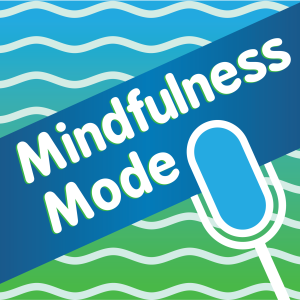
Dr. Russell Jaffe is scientist who is certified in Clinical and Chemical Pathology. He has more than 40 years of experience contributing to molecular biology and clinical diagnostics. He has spent his career searching for deeper wisdom and insight into how humans can enjoy better
health. Being incredibly curious and yet skepical, he set out to prove that many holistic forms of health and healing systems were not particularly valid, or at least not scientific. Instead, his discoveries changed the direction of his career and he became deeply engrossed in the study of Traditional Chinese Medicine, acupuncture, meditation, homeopathy and manipulative arts.
Contact Info- Website: DrRussellJaffe.com
- Online Book: Perque.com/alkway
- Health Tests: Betterlabtestsnow.com
- Bonti (My Mentor)
- Well I would like to think that I am a bit more kind and compassionate. My experience is that emotions are now like the weather. They affect me. I am aware of them. I watch them because for me it's a dynamic of engaged non-attachment; engaged with what I'm doing, this conversation for example. But nonattached to the outcome and therefore able in fact more than able, willing and practicing the art of living. And if you want to fully be in the moment and feel the fullness of the moment, practicing non-attachment is very helpful for mental health.
- You can easily get overwhelmed with the emotions. That's the astral level of life. But then there is an electromagnetic level or an astral level and maybe beyond that a spiritual, or soul level. And in my tradition as well as in my science, all of it is grist for the mill, all of that is part of the art of living.
- Practice Non-Attachment To Experience The Art of Living Says Scientist Dr. Russell Jaffe
- Practice Non-Attachment To Become Compassionate Says Scientist Dr. Russell Jaffe
- Non-Attachment Leads To Compassion Suggests Scientist Dr. Russell Jaffe
- Our breath is a refuge. That's a classic Buddhist concept. What that means is that when most people feel what's called fight or flight response, some of us practice the third way which is fortitude.
- So yes we can flee, yes we can fight. But both of those are afflictive and harsh. The other choice is fortitude. Fortitude means being calm in the midst of everyone else's turbulence. It means letting your breath engage you as the witness of your life because when I say non-attachment I mean that as we're having this conversation part of me is watching me and us have this conversation, this communion, this connection, this meaningful moment.
- Book: The Science of Breath by Swami Rama, Rudolph Ballentine, and Alan Hymes
- Book: Active Meditation: The Western Tradition by Robert R. Leichtman, Carl Japikse
- App: Timer App
Your Meditation Practice
- I had the great good fortune of just doing it. I was told to take twenty minutes, twice a day, and be. And during that time of twenty minutes, I should just repeat the sound that I was given, it was whispered in my ear.
- There was a whole ceremony. It was lovely in the sense that it heightened my attention to that particular sound for me. What I did was the lowest of the low tech versions.
- I picked one place. I sat there for twenty minutes twice a day and I learned to measure approximately what twenty minutes was without any device.
- I have no problem, if you want to set your phone to tell you when the time that you allot has passed so that you don't have to be preoccupied with whether its going to be nineteen, twenty or twenty-one minutes.
- The essence of meditation is to be, to be with your breath, to be with a sound, to be with an image, to be with whatever it is that you are inclined to be with.
More Episodes
An Overactive Mind Achieving Balance; Daniel Hess
 2022-06-05
2022-06-05
 4.3k
4.3k
 2022-06-05
2022-06-05
 4.3k
4.3k
Journaling To Manifest Your Best Life; Nathaniel A. Turner
 2022-06-01
2022-06-01
 4.4k
4.4k
 2022-06-01
2022-06-01
 4.4k
4.4k
Environmentalism Is The 21st Century Spirituality; Teza Lord
 2022-05-29
2022-05-29
 4.3k
4.3k
 2022-05-29
2022-05-29
 4.3k
4.3k
Mindfulness In Manufacturing; Jason Azevedo
 2022-05-25
2022-05-25
 4.4k
4.4k
 2022-05-25
2022-05-25
 4.4k
4.4k
Mindfulness Matters; Akai Jackson
 2022-05-22
2022-05-22
 4.4k
4.4k
 2022-05-22
2022-05-22
 4.4k
4.4k
Ditch Your Headtrash; Renie Cavallari
 2022-05-18
2022-05-18
 4.4k
4.4k
 2022-05-18
2022-05-18
 4.4k
4.4k
Walking For Mindfulness
 2022-05-15
2022-05-15
 4.4k
4.4k
 2022-05-15
2022-05-15
 4.4k
4.4k
Holistic Parenting Simplified; Julie Hatch
 2022-05-11
2022-05-11
 4.3k
4.3k
 2022-05-11
2022-05-11
 4.3k
4.3k
Innovation For All; Costa Michailidis
 2022-05-08
2022-05-08
 4.4k
4.4k
 2022-05-08
2022-05-08
 4.4k
4.4k
Breath and Fire; Michelle Hillier
 2022-05-04
2022-05-04
 4.4k
4.4k
 2022-05-04
2022-05-04
 4.4k
4.4k
A Tribute To My Mom
 2022-05-01
2022-05-01
 4.2k
4.2k
 2022-05-01
2022-05-01
 4.2k
4.2k
Enjoy The Gift Of The Present; Jennifer Ibbotson Rodriguez
 2022-04-27
2022-04-27
 4.7k
4.7k
 2022-04-27
2022-04-27
 4.7k
4.7k
The Path To Kindness; James Crews
 2022-04-24
2022-04-24
 4.7k
4.7k
 2022-04-24
2022-04-24
 4.7k
4.7k
Reaching For Joy; Zehra Mahoon
 2022-04-20
2022-04-20
 4.6k
4.6k
 2022-04-20
2022-04-20
 4.6k
4.6k
Shadow Work To Nourish And Grow: Winnie Chan Wang
 2022-04-17
2022-04-17
 4.5k
4.5k
 2022-04-17
2022-04-17
 4.5k
4.5k
Entering The Mind; C von Hassett and Rachel Reid Wilkie
 2022-04-13
2022-04-13
 4.6k
4.6k
 2022-04-13
2022-04-13
 4.6k
4.6k
Conquer Executive Loneliness; Nick Jonsson
 2022-04-10
2022-04-10
 4.7k
4.7k
 2022-04-10
2022-04-10
 4.7k
4.7k
Three Simple Steps To A Balanced Life; Trevor G. Blake
 2022-04-06
2022-04-06
 5.4k
5.4k
 2022-04-06
2022-04-06
 5.4k
5.4k
Tao Te Ching Philosophy; Jessie Kanzer
 2022-04-03
2022-04-03
 4.9k
4.9k
 2022-04-03
2022-04-03
 4.9k
4.9k
What Is Consciousness; Tom Campbell (Part 2)
 2022-03-30
2022-03-30
 5.0k
5.0k
 2022-03-30
2022-03-30
 5.0k
5.0k
012345678910111213141516171819
Create your
podcast in
minutes
- Full-featured podcast site
- Unlimited storage and bandwidth
- Comprehensive podcast stats
- Distribute to Apple Podcasts, Spotify, and more
- Make money with your podcast
It is Free
- Privacy Policy
- Cookie Policy
- Terms of Use
- Consent Preferences
- Copyright © 2015-2024 Podbean.com



